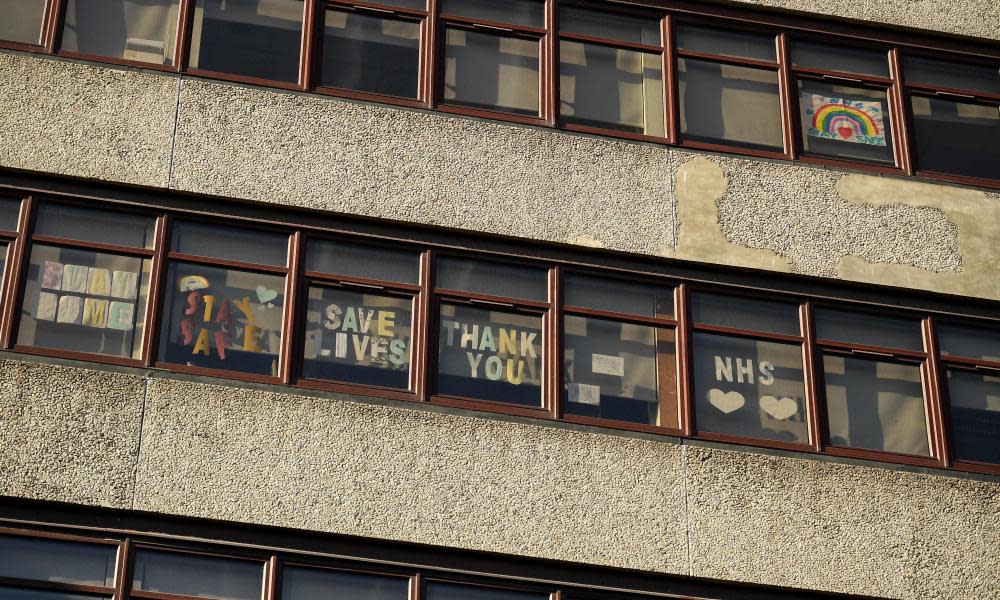Working in the NHS, it doesn't feel like any end to Covid is in sight

It turns out that a pandemic really is a marathon, not a sprint to a finish line. I guess that was obvious really.
It’s not all bad. We are no longer dealing with an unknown threat that we are having to discover as we go along. The disease is known, its presentation recognised, its complications understood.
We have treatments. Infection control pathways are in place, areas allocated to cohort suspected patients. However, the novelty has officially worn off now. We try to motivate ourselves, even though, in the words of a colleague this week, “Covid is so fucking boring”
For us in respiratory medicine, winter is high season at the best of times. There is a steady flow of patients with pneumonia, empyema, exacerbations of COPD and asthma, often themselves among the sickest of the medical patients in the hospital.
This comes alongside our usual outpatient work, often itself busier in winter as we try to keep people out of hospital. This time, however, we are also still struggling to get on top of the completely new task of following up hundreds of patients from the first wave as well as an enormous backlog of routine work from when our services were shut down.
There has been little help from other specialties, although I know there are pressures everywhere.
Into this mix comes another wave of patients with fresh Covid, their X-rays showing the classic appearances, looking stable one minute but coming close to dying the next; I feel like the virus is sticking two fingers up at us, laughing.
The patients we are admitting seem younger this time around, though maybe this is just my impression.
Mercifully there are fewer of them, though they are no less unwell.
The burden of looking after the sickest on the wards, before they need to go to intensive care, again falls to us in respiratory medicine. I feel a dull anger; it feels that we as a specialty are so disproportionately affected by this pandemic.
Many of my colleagues in the specialty feel the same. We are fighting fires on many fronts.
With all of this comes the unpleasant realisation that our infection control measures – based around making a clinical assessment as to who has the disease – are worryingly fallible now that the community prevalence is high again.
Without doing a rapid swab on every patient admitted, we cannot help missing asymptomatic cases, yet our daily allocation of these is about a 10th of the number of medical patients we usually admit; we are still fighting with one hand tied behind our backs.
Mini-outbreaks bloom on our wards and among our staff, many of whom have gone off work and some of whom have ended up being admitted unwell to our hospital.
This happened during the first wave and to see it happening again is truly heartbreaking.
The answer to this has been to transform the hospital into a cold, unfriendly place. Masks for everyone, security at the door to keep out relatives, bans on having lunch together or in-person meetings, no touching of anyone or anything without gloves, infection control teams patrolling the wards to pick up PPE infractions.
I have got used to having a temperature gun pointed at my head every morning and routinely failing to recognise my colleagues’ masked faces.
I have conversations with dying patients about their wishes for end-of-life care when they can barely understand a word I’m saying through my mask.
While all this is necessary, it reinforces the otherworldly reality in which we now live.
I remain immensely proud of my colleagues. Overall, the team-working, flexibility and dedication to a shared cause has been exceptional and, at times, deeply humbling.
That said, there has been a shift in attitudes this time around. People are tired, fed up, stressed by conflicting pressures.
There is understandable reluctance to continue being shifted between different areas, asked to fill in wherever there is a gap that morning.
People who perhaps were not so involved the first time around remain deeply anxious about the disease.
Related: England at risk of third Covid wave in new year, says Raab
In this context, with exhaustion and emotions high, tempers flare and goodwill becomes strained. This is driven by anxiety and uncertainty, reflective of a workforce placed under unprecedented pressure, but each new clash leaves a sourness that takes days to fade. We are still pulling together, but the rope is fraying now.
The problem here is that it doesn’t feel like any end is in sight.
The news about a vaccine – astonishing, really, within a year of the disease emerging – still doesn’t feel real on the frontline. I can barely remember what my work used to feel like now. I believe I used to share lunch breaks, shake hands with people, go out for drinks with my colleagues, though those ideas seem strange now.
The idea that a vaccine will somehow return us to how we were, that we will shake our heads and pick up where we left off, feels utterly impossible. I can only hope I am wrong.
• The writer is an NHS respiratory consultant who works across a number of hospitals.


